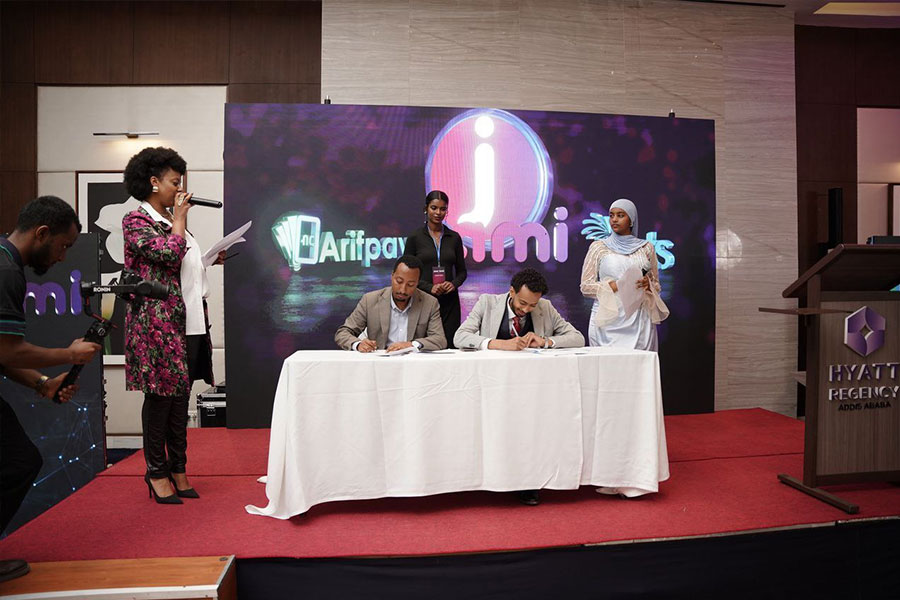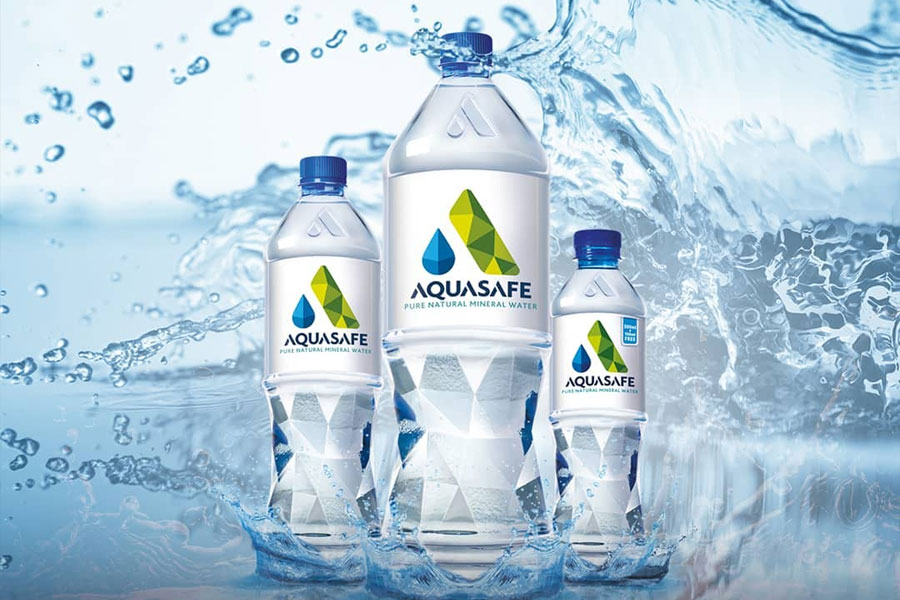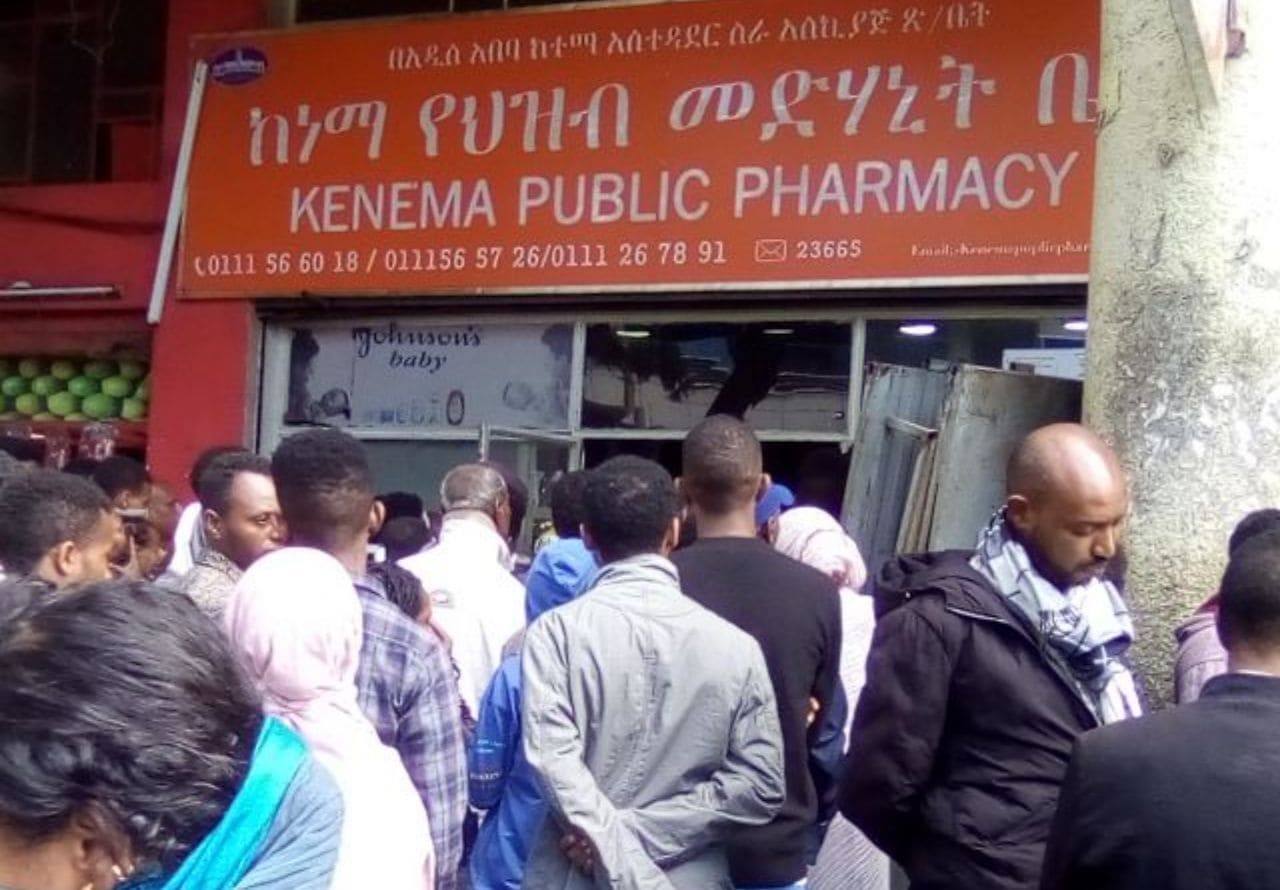
On the road from Agona to Qera, daily labourers are washing cars along the side of the road, while brokers negotiate with buyers and dealers so they can come to terms.
The area is known for a concentration of car dealerships lined up one after another selling different types of used and new model cars.
Gezahgn Gebre, in his mid-30s, is one of the visitors of Efrem Car Dealer, located near Agona Cinema. Efrem Car Sales Shop, a car dealership that opened eight years ago, sells cars ranging between 800,000 Br to 2.5 million Br.
A transporter of furniture when people relocate between houses, Gezahgn was looking for a Toyota Hilux 2lt pick-up for his job. Previously he used to own a 2000 model of the same vehicle, which he bought four years back for 375,000 Br.
Gezahgn, who was born and has grown up in the capital, sold his old car for about half a million Br four months ago with the intention of replacing it with a new one.
On December 25, 2019, Gezahgn, the father of three, was at the dealer to replace his old car, but he was surprised to find out that the car prices had rocketed beyond his expectation.
“I expected to spend a maximum of 730,000 Br," he said, "but I couldn’t find a car at this price, and the lowest offer I got was 850,000 Br.”
The price hike followed the excise law amendment, which is part of the government's initiative aimed at increasing revenues generated from the tax. The bill was tabled to the parliament.
The new draft of the excise tax law imposed a tax on imported vehicles that reach as high as 500pc.
The bill levies a 400pc excise tax on vehicles with a seating capacity of 16 passengers that are made over seven years ago and 500pc on cars with more than 1,800cc that are over seven years old.
Similarly, vehicles over seven years old with an engine capacity of 1,300cc will pay 430pc excise tax, while 460pc tax will be imposed if their capacity is between 1,300cc and 1,800cc.
Toyota Vitz models that are ready for sale sit near Qera.
The bill, which will replace the existing one that has been in place for the last 17 years, does not only enforce the increase in used cars but also new ones.
A new vehicle with a cylinder capacity below 1,300cc is subjected to a 30pc excise tax. A new car with a cylinder capacity between 1,300cc and 1,800cc will be charged 60pc under the new bill. On new vehicles with cylinder capacities above 1,800cc, the bill will impose 100pc excise tax.
The existing excise tax was imposed based on the cylinder capacity (cc) of the automobiles. Cars up to 1,300cc had an excise tax of 30pc; vehicles between 1,300 and 1,800cc were taxed at 60pc; and the ones with more than 1,800cc were taxed 100pc.
After the announcement of the proclamation, Toyota Vitz and Toyota RAV4 models have increased by an average of 150,000 Br, and 400,000 Br, respectively. Corolla models have peaked by an average of 300,000 Br from the prices that they were sold for just two months ago.
The 2005 Toyota Vitz model is selling for around 600,000 Br and could reach 1.5 million Br when the excise taxes are applied.
The 2007 Corolla model is being sold for an average price of one million Birr and could be sold as high as 3.5 million Br. The 2017 RAV4 models, which used to cost three million Birr, are expected to reach four million Br when the tax is imposed.
Some dealers like MAHI Car Sales located around Qera stopped selling their vehicles until the proclamation is legislated, anticipating the value of the cars will increase.
MAHI Car Sales, which operates with 18 employees, has been importing cars from Germany and Dubai for the last nine years.
"Because the prices of cars are expected to increase after the excise tax is applied," said Abubaker, "we're holding onto our stock."
However, Abubaker believes that the new bill comes at the wrong time, stating that the importers are already in a challenging situation.
"We're still facing foreign currency shortages," said Abubaker Temam, owner and manager of MAHI Car Sales.
Three months ago Abubaker used to import 20 cars and sell 15 vehicles a month, but now he says he is lucky if he sells two cars.
"If things go like this and the number of buyers decline," he said, "I will be forced to let some of my employees go."
Another car importer that has been in the business for the last eight years agrees with Abubaker.
"They drafted the bill without consulting with us," said Ephrem Gashaw, owner of Efrem Car Sales Shop. "The least they could have done was call us to discuss the issue."
"Because of the price increases, the number of buyers will drop,” he adds.
Even though the car dealers and buyers are disappointed with the newly drafted bill, the Ministry of Finance seems confident the new bill, which has taken two years to develop, could bring positive changes in the economy and socially.
The aim of the draft is not only maximizing the amount of the collected revenue but also minimizing the environmental pollution, fuel consumption and spare parts expenses, according to Hajji Ibssa, communications director at the Ministry.
"We've had up to 12 discussion sessions with different stakeholders on the draft," says Hajji, stating that all of the propositions made by the draft might not be legislated.
The Federal Transport Authority also welcomes the newly drafted bill, stating that it will lower traffic accidents.
The bill will minimise fuel consumption and traffic accidents, which caused the death of 3,738 people and 873 million Br in property damages in the last year alone, according to Yigezaw Dagnew, communications director at the Federal Transport Authority.
Ethiopia has one of the lowest numbers of cars in the world at 1.1 million, of which around half are located in the capital. Out of the total number of cars, 219,699 vehicles are small automobiles.
Close to 85pc of imported vehicles in Ethiopia are second-hand, and about 90pc are Toyotas, according to Deloitte Africa Automotive Insights. These vehicles are imported primarily from the United Arab Emirates through the Port of Djibouti.
The new excise tax aims to improve the income of the government, and 50pc to 400pc excise tax will be imposed on used cars, according to Mulay Weldu, tax policy director at the Ministry.
Out of total GDP, Ethiopia collects 0.7pc from excise taxes, while other Sub-Saharan Africa countries collect an average of 1.4pc of their GDPs.
Two years back the Ministry of Revenues collected 6.6 billion Br in excise tax from imported goods, which has increased to 7.6 billion Br last fiscal year.
“The price of used vehicles shouldn't be below the new ones," Mulay said, "at least it should be equal or above to discourage people from buying old cars."
Compared to new cars, used cars consume 76pc more fuel, and the nation spends nearly 80pc of its foreign trade income on fuel, according to Mulay.
Liqu Worku, a lawyer, believes that the government has a gap in regulating the existing market, because most of the car dealers increase the prices of cars that were already imported before the bill is legislated.
"If their aim is to minimise fuel consumption and to protect the environment, they cannot justify imposing 30pc tax on new cars,” Liqu argues. "The excise tax on new cars should not be more than five percent in any case."
Putting a 500pc excise tax on used cars is very exaggerated, according to Liqu.
"It is as good as totally banning us from importing them," he said.
Even though the price has spiked, Gezahgn has not changed his mind about buying the car. However, he went back home without buying the car, since he was short by 120,000 Br to buy the pickup.
"If I have money on my hand, I will buy the car, because the price will keep on increasing,” said Gezahgn, who decided to explore ways to get the money before a further increase.
PUBLISHED ON
Jan 05,2020 [ VOL
20 , NO
1028]

Fortune News | Jan 07,2024

Editorial | Apr 26,2025

Fortune News | May 07,2025

Radar | Aug 18,2024

Advertorials | May 30,2025

Viewpoints | Jun 11,2022

Commentaries | Oct 03,2020

Fortune News | Mar 09,2024

Covid-19 | Mar 21,2020

Viewpoints | Dec 25,2021

Dec 22 , 2024 . By TIZITA SHEWAFERAW
Charged with transforming colossal state-owned enterprises into modern and competitiv...

Aug 18 , 2024 . By AKSAH ITALO
Although predictable Yonas Zerihun's job in the ride-hailing service is not immune to...

Jul 28 , 2024 . By TIZITA SHEWAFERAW
Unhabitual, perhaps too many, Samuel Gebreyohannes, 38, used to occasionally enjoy a couple of beers at breakfast. However, he recently swit...

Jul 13 , 2024 . By AKSAH ITALO
Investors who rely on tractors, trucks, and field vehicles for commuting, transporting commodities, and f...

Jul 12 , 2025
Political leaders and their policy advisors often promise great leaps forward, yet th...

Jul 5 , 2025
Six years ago, Ethiopia was the darling of international liberal commentators. A year...

Jun 28 , 2025
Meseret Damtie, the assertive auditor general, has never been shy about naming names...

Jun 21 , 2025
A well-worn adage says, “Budget is not destiny, but it is direction.” Examining t...